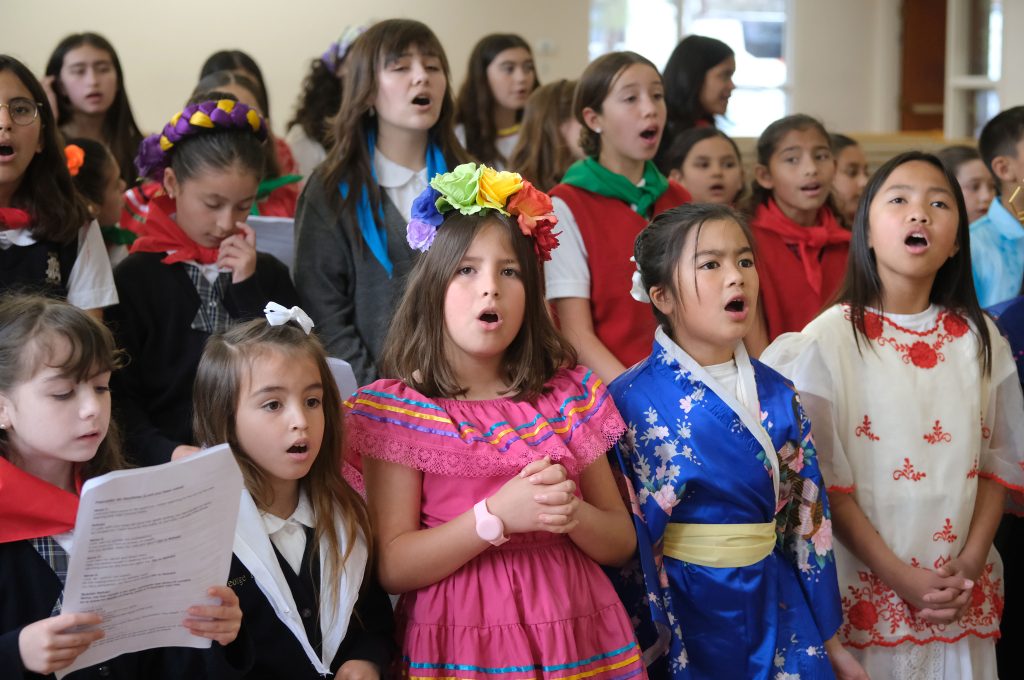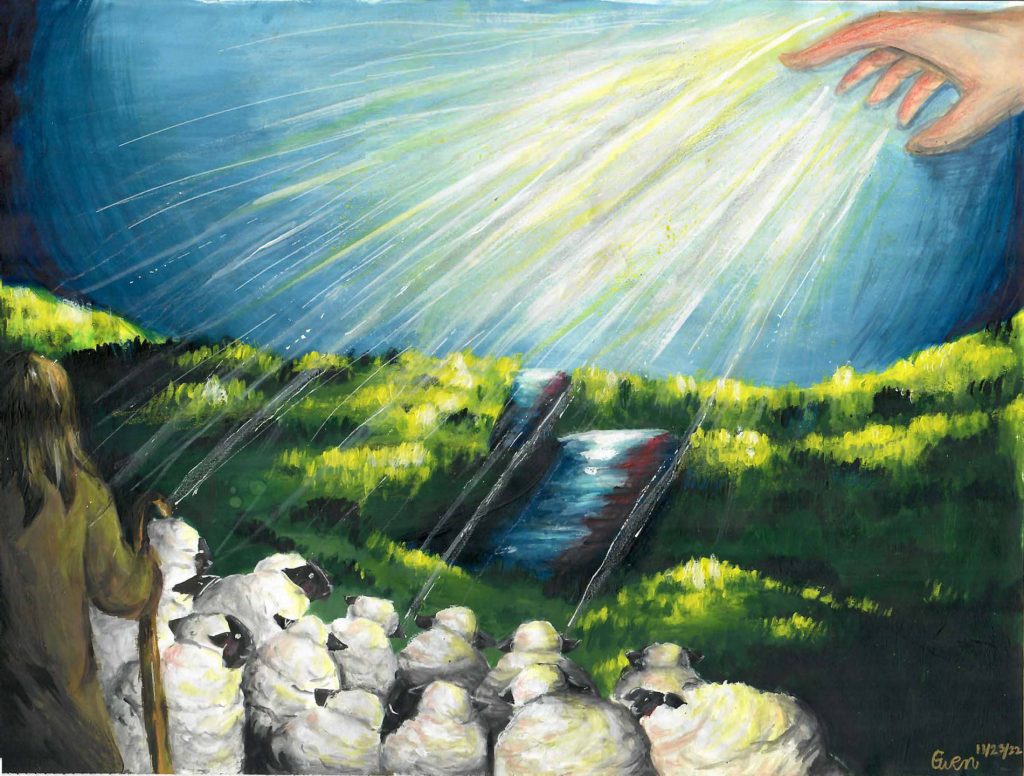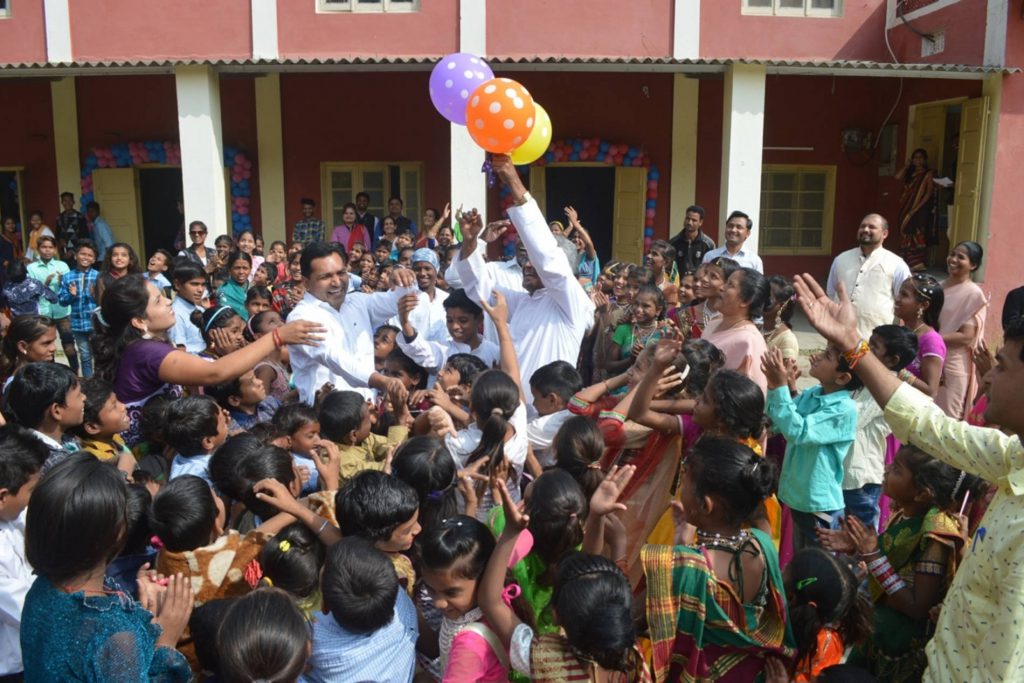SAN DIEGO — Father Soney Sebastian, SVD, has taken over as director of the diocesan Office for the Missions at a challenging time.
One of the office’s major projects consists of welcoming visiting missionaries during the summer months and arranging for them to make their appeals at diocesan parishes. The COVID-19 pandemic has made that impossible this year.
The annual World Mission Sunday collection, scheduled for Oct. 18, may also be affected by the pandemic as efforts to stem the spread of the novel coronavirus have led to restrictions on public worship as well as hardship for many individuals and families.
“We do not know how effective and successful it will be,” the 55-year-old priest said of the upcoming collection, “because people [here] are also hurting.”
But despite the present challenges, he is excited by the possibilities offered by his new assignment, which he began on June 1. A member of the Society of the Divine Word, he is the third consecutive member of that religious order to head the Missions Office, where he hopes to carry on his predecessors’ work while also making his own contribution.
“Media has been my passion,” said Father Sebastian, explaining that his experience in this field dates back to his seminary years.
One of his first assignments as a young priest in his native India was as assistant director and then director of a media center. He earned a master’s degree in Social Communication from St. Patrick’s College in Maynooth, Ireland, in 2002. And, just prior to accepting his current job, he spent almost 17 years with Wordnet Productions, a Catholic television ministry currently based in San Bernardino, with which he plans to continue his involvement.
Father Sebastian is already looking at ways to use his media savvy to benefit the Missions Office.
For example, the office’s website (www.sandiegomissionoffice.org) is currently being redesigned. He would like the revamped site to include a new section featuring stories, photos and videos from the missionaries who visit the Diocese of San Diego each year to solicit prayers and donations. Such videos could also be shared with the parishes where those missionaries have spoken, as a way of showing parishioners what their generous donations have made possible.
Sister Jeanne Harris, a Dominican Sister of Mission San Jose who serves as communications specialist at Wordnet Productions, came to know the “characteristic enthusiasm and friendliness” of Father Sebastian, whom she described as a tireless worker who performed his duties “with skill and grace.”
“Although both Wordnet and Father Soney intend to continue collaborating, surely the Diocese of San Diego will be pleased and privileged to benefit from his service in the Mission Office,” she said.
Born in Kerala, a state on the southwestern coast of India, Soney Sebastian grew up in a traditional Catholic family, where religious devotions were a part of his daily life. He was an altar server and a Catholic school student.
At his high school, many visiting missionary priests would speak about their experiences and invite the students to consider joining their religious orders.
One day, when he was about 15 years old, he spotted a calendar in the school office. That month’s photo was the image of a missionary priest on a motorcycle in Africa, surrounded by the scenery of his mission territory and the people he served. The photo captured young Sebastian’s attention.
“Seeing that, I wanted to be also a missionary,” he said.
In July 1981, he entered St. John’s Mission Seminary in Kerala. He studied graduate-level theology at the Papal Seminary in Pune, India. He was ordained to the priesthood on May 6, 1992.
Before ordination, he was asked for his preferences on where he would most like to serve as a missionary. He did not include India on his list, but as it turned out, his first assignment was to a province in the central part of the country. The situation there was so “totally different” from that of his home state — the language, customs and food were all different — that it was truly a missionary experience, despite being the same country, he said.
Father Sebastian felt that he was “already a foreigner the moment I [got] out of the boundaries of my little state.” He recalled the simplicity he encountered in the villages and how days there unfolded without the fixed schedules to which so many of us have grown accustomed.
When he would board a bus to one of the villages in his parish, there would be no guarantee that the vehicle — filled not only with passengers, but also with live goats, chickens and fresh produce — would arrive at its destination by a specific time. It would arrive when it arrived.
There was also no running water in the villages and his bed was often a thin mattress on the floor. He had to celebrate “many Masses” with his own suitcase as the altar.
Under his leadership, he wants the Missions Office to continue providing opportunities for local Catholics “to participate in the mission mandate of the Church” by welcoming missionaries, hearing their stories, and supporting them through prayers and monetary donations.
“Christ has given us all a mandate to bring the Gospel values to everyone,” he said. “Everything that we do at the Mission Office is to carry out that, and I hope everyone will join us to fulfill that mission mandate.”








